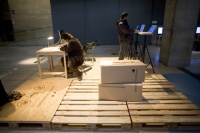What experiences, beliefs and values affect your way of perceiving reality and how do you respond to that perception?
NOW incorporates a selection of new paradigms in the scientific, economic, political, educational, artistic and spiritual spheres.
The term paradigm was introduced by science historian Thomas S. Kuhn in his influential work The Structure of Scientific Revolutions (1962). In later essays, Kuhn himself admitted the "excessive plasticity" that the term had acquired, but the truth is that despite the controversies that it may have caused in the scientific community, and its use and abuse in the most disparate spheres, the notion of paradigm is a tool that allows the complex process of changes in which we are immersed to be clarified and synthesised.


